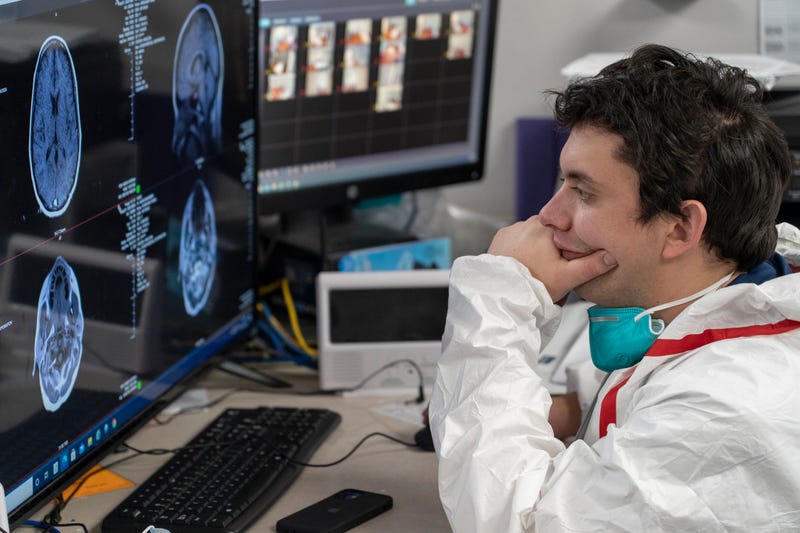
A study of COVID-19 survivors’ brain scans showed potentially long-lasting effects on vital, memory-related parts of the brain. It raises concerns over dementia and Alzheimer’s disease.
UK Biobank scanned more than 40,000 participants before the pandemic started. Of those, 782 people returned for second scans, 400 of whom had tested positive for and recovered from COVID-19. Researchers used biomarkers to compare structural and functional changes in the brain scans from before and after COVID infection.
Imaging revealed coronavirus infection could significantly reduce brain tissue called gray matter, vital for processing and sending information to various parts of the body. Gray matter fully develops when a person reaches their 20’s and makes up 40% of the brain. It contains most of the brain’s neurons. Even mild cases of COVID-19 can show changes.
“The limbic nature of the regions of the olfactory system, and their physical proximity to the hippocampus, in particular, raise the possibility that longer-term consequences of SARS-CoV-2 infection,” the authors wrote. “The loss of grey matter in memory-related regions of the brain may, in turn, increase the risk of these patients of developing dementia in the longer term.”
The results have led to an international partnership, including the Alzheimer’s Association, to investigate the questions posed. The study still needs to be reviewed by peers.
A separate study released in May by Georgia State University showed COVID-19 patients who experienced more severe disabilities had less gray matter, even six months after discharge and recovery.

